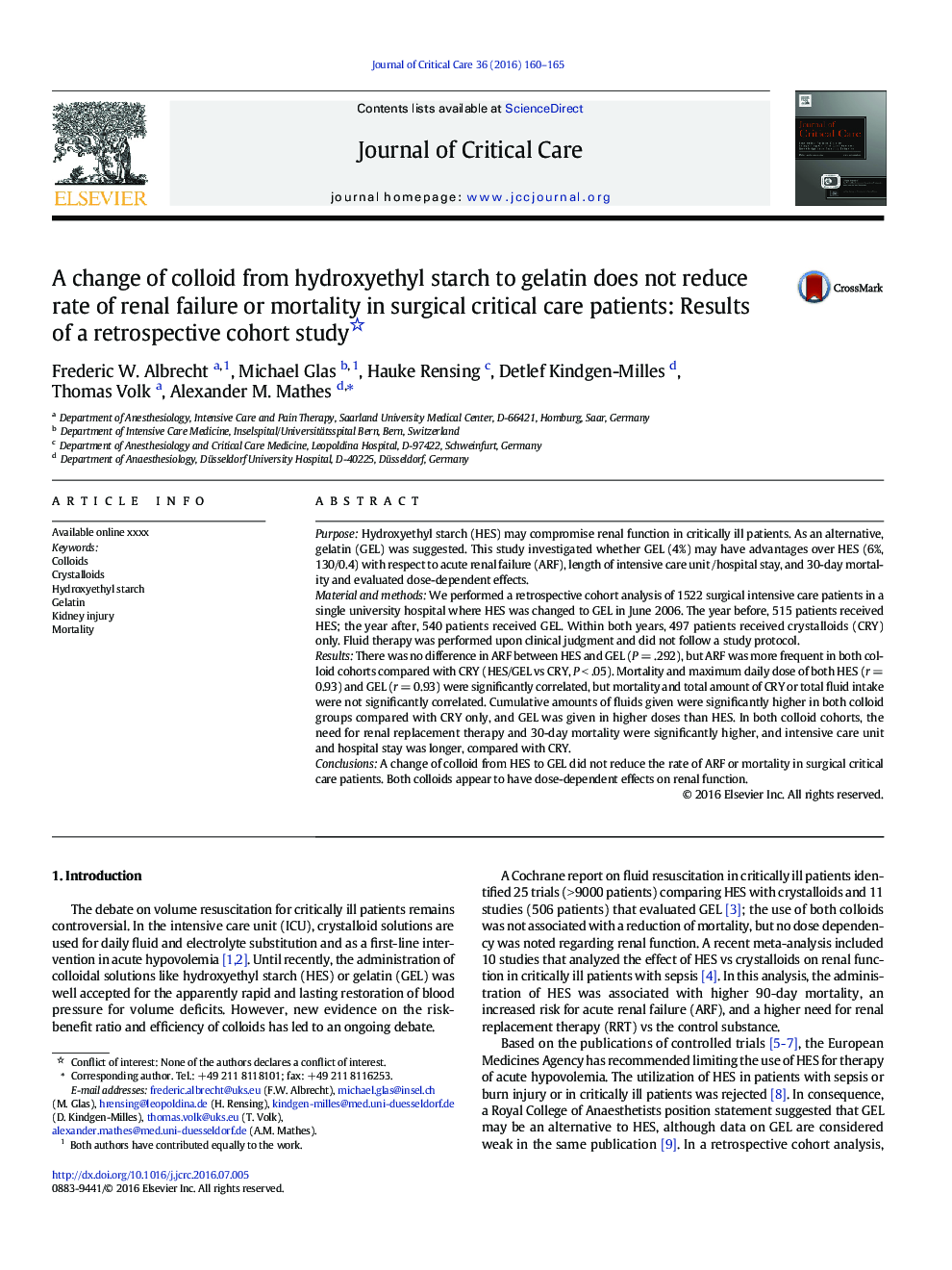| کد مقاله | کد نشریه | سال انتشار | مقاله انگلیسی | نسخه تمام متن |
|---|---|---|---|---|
| 2764371 | 1567676 | 2016 | 6 صفحه PDF | دانلود رایگان |
PurposeHydroxyethyl starch (HES) may compromise renal function in critically ill patients. As an alternative, gelatin (GEL) was suggested. This study investigated whether GEL (4%) may have advantages over HES (6%, 130/0.4) with respect to acute renal failure (ARF), length of intensive care unit /hospital stay, and 30-day mortality and evaluated dose-dependent effects.Material and methodsWe performed a retrospective cohort analysis of 1522 surgical intensive care patients in a single university hospital where HES was changed to GEL in June 2006. The year before, 515 patients received HES; the year after, 540 patients received GEL. Within both years, 497 patients received crystalloids (CRY) only. Fluid therapy was performed upon clinical judgment and did not follow a study protocol.ResultsThere was no difference in ARF between HES and GEL (P = .292), but ARF was more frequent in both colloid cohorts compared with CRY (HES/GEL vs CRY, P < .05). Mortality and maximum daily dose of both HES (r = 0.93) and GEL (r = 0.93) were significantly correlated, but mortality and total amount of CRY or total fluid intake were not significantly correlated. Cumulative amounts of fluids given were significantly higher in both colloid groups compared with CRY only, and GEL was given in higher doses than HES. In both colloid cohorts, the need for renal replacement therapy and 30-day mortality were significantly higher, and intensive care unit and hospital stay was longer, compared with CRY.ConclusionsA change of colloid from HES to GEL did not reduce the rate of ARF or mortality in surgical critical care patients. Both colloids appear to have dose-dependent effects on renal function.
Journal: Journal of Critical Care - Volume 36, December 2016, Pages 160–165
